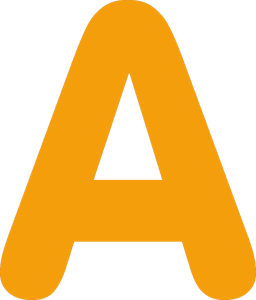- Published on
Orienteering and AI
- Authors

- Name
- Andrin Benz
This article is the start of a series of articles about orienteering and artificial intelligence.
In this article, we will for the first time delve into the topic of AI in orienteering. We will discuss several areas of application, common difficulties, and also review some existing discussions.
Areas of Application
Overview
The field of orienteering offers many potential areas for AI integration:
AI in mapping
- (Partial) automatic generation of orienteering maps
- Automatic updating of existing orienteering maps
- Detect new areas of interest for orienteering
AI in course setting
- Create courses
- Optimise Course Setting
AI for training
- Training plan development
- Simulation based training
- Training performance analysis
AI in Event Management
- Real-time event reporting
Let me know your ideas about the application of AI in orienteering.
Let's delve into some subjects that have limited available research, sharing my personal opinion as a non-expert in AI.
AI in mapping
There have been numerous initiatives trying to automatically generate orienteering maps using data such as Lidar data.1 However, as far as current knowledge goes, none of these initiatives have leveraged artificial intelligence.
Conversely, substantial efforts are presently focused on employing AI for the automatic generation of road maps. There's a possibility that these advanced algorithms could be tailored to cater to the style and requirements of orienteering maps, potentially finding useful applications.
AI is poised to accelerate the process of creating new orienteering maps. Nevertheless, the ultimate validation of a map before its utilization in a competition still necessitates human inspection. Unlike the vast datasets available for developing AI in roadmaps, there's a lack of comparable resources accessible to the orienteering community, presenting a barrier to research in this domain.
AI in course setting
The integration of artificial intelligence into orienteering course setting represents an exciting area of opportunity. While AI promises to simplify some aspects of the organisation of this sport, it also presents challenges that need to be considered.
One compelling application of AI is course optimisation. This has immense potential to benefit not only smaller training groups, but also colossal events with large numbers of participants. Using sophisticated algorithms, AI models can identify potential hurdles or problem areas within a course layout. This capability is invaluable for coaches who want to create bespoke courses for individual athletes, tailored to their specific training goals. In addition, AI can identify inefficiencies in resource utilisation and offer more refined and effective solutions.
However, despite the promise, caution is called for. Over-reliance on AI could inadvertently sideline crucial human insights and experience that are integral to course design. There's a balance to be found between leveraging AI's analytical capabilities and retaining the nuanced expertise of experienced course designers and coaches. Furthermore, AI models are only as effective as the data on which they are trained, which poses a challenge when considering the diverse terrain and conditions encountered in orienteering.
AI for training
Another interesting topic for the use of artificial intelligence, where it might be a bit easier to get enough material to train the algorithms, would be to improve personalised training. I can see a lot of use cases, whether it is recognising patterns that could lead to injury, or suggesting the optimal training schedule, for example intervals.
In many other sports the usage of AI to analyze trainings is already quite common.2 I wasn't able to find any resources online that AI is in use in the national orienteering teams.
A good course-setting and/or map-drawing AI would also have a huge impact on simulation-based training. It would be very easy to create tons of material to either prepare for a specific terrain or train a specific skill.
AI in Event Management
The spectrum of AI applications in supporting event organization is extensive. Potential use cases encompass automatically responding to participant queries, aiding in creating event bulletins, and even suggesting bulletin content automatically.
Moreover, in events broadcasted live, AI could provide invaluable insights and analyses. With available GPS data, estimations could directly showcase the time lost when opting for a slower route choice. This real-time analysis could significantly enhance the understanding of race dynamics for both the audience and the production crew.
Existing Resources
I found few existing resources online:
- Discussion about AI generated orienteering maps
- Ideas regarding a course setting AI for individual trainings
Feel free to email me if you're aware of any other resources that could be beneficial in this context.
Difficulties
Lack of data
The most obvious problem is the scarcity of relevant data. Initiatives aimed at building comprehensive data sets could prove to be valuable to the orienteering community.
Accuracy
Reaching high accuracy in current setups seems improbable. Nonetheless, there exist various applications where AI could support orienteers in their endeavors. But it does not appear that AI will be able to take over all the tasks involved in drawing a map or setting a course, for example.
Conclusion
The creation of larger datasets holds tremendous value for the sport of orienteering. These datasets would not only benefit AI applications but also contribute significantly to broader research endeavors within the field.
It seems that artificial intelligence could help orienteers to optimise or speed up the process of orienteering related tasks. However, the human factor will still play an important role.
Footnotes
E.g. mapant.ch, o-map.ch, mapant.es, mapant.no and many more (see mapant.net for full list) ↩
